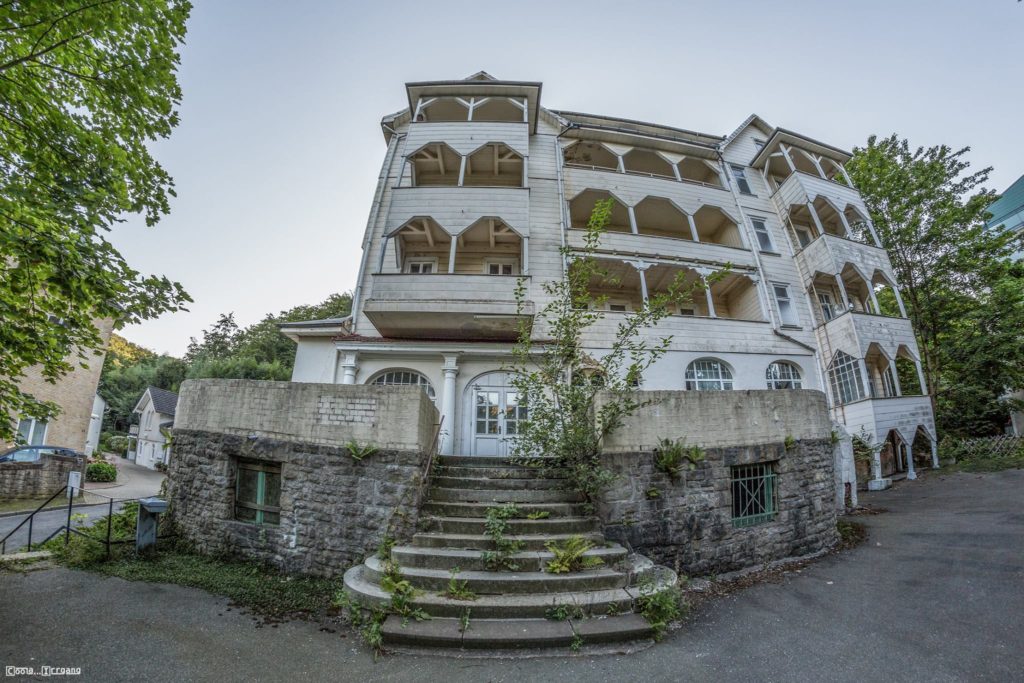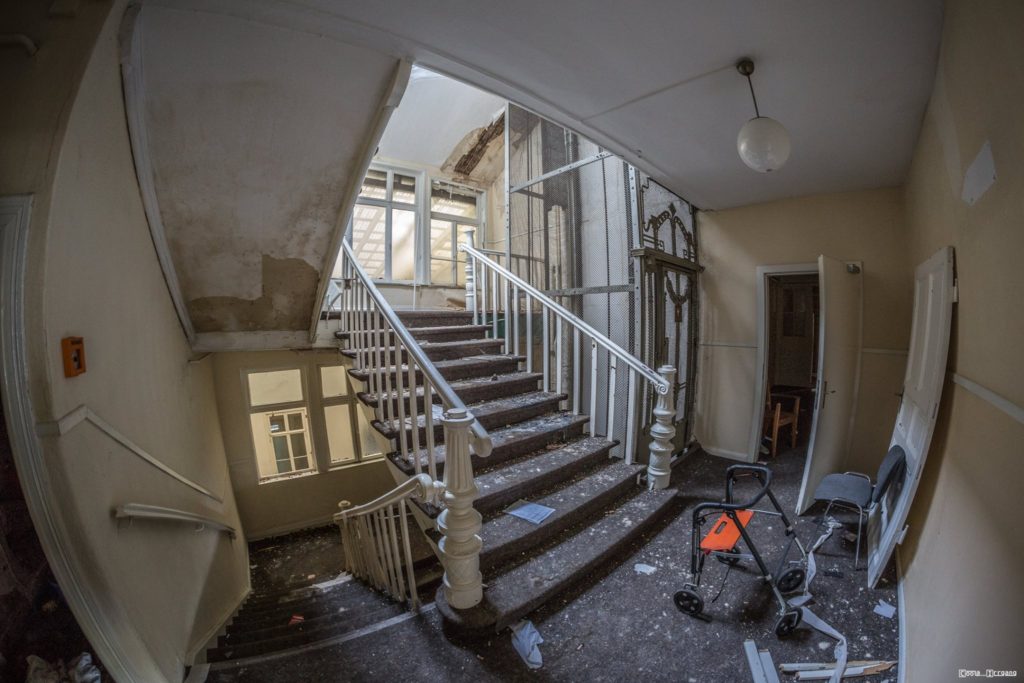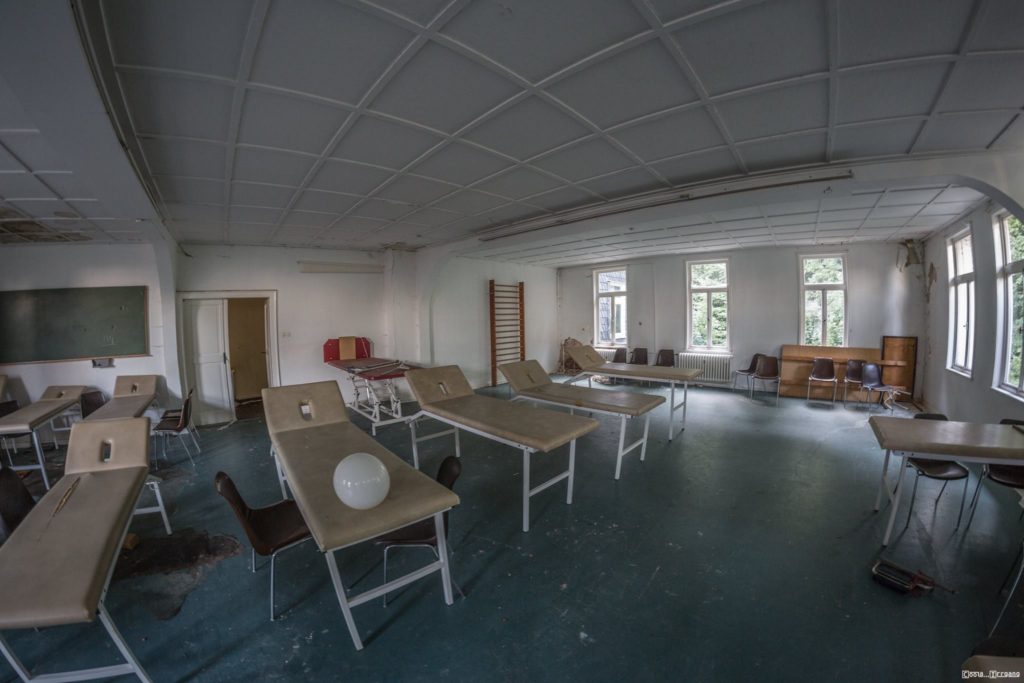Abandoned architectural, infrastructural or technological artifacts of the past are scattered all around the world, reminding us that nothing built by (wo)man can ever stand the test of time on its own. The reasons behind the abandonment of such places vary, and for a long time in most cases they simply slipped into historical oblivion. In recent years, though, such “lost places“ have become adventure playgrounds or photo opportunities for a growing number of people worldwide, who find them stunning to visit in their strange otherworldly beauty or gloomy atmosphere – depending on the aesthetic perception of the observer.
The abandoned Loges School for Physiotherapy in Bad Harzburg was originally built in 1864 as “Hotel Ludwigslust“. It later became one of four German “Loges-Schools“ (private schools for physiotherapy); all training centres and dormitories for prospective physiotherapists. The complex stood empty since the beginning of 2006, after the Loges School stopped teaching, and was demolished in early 2019. Before its demolition, the Loges School for Physiotherapy was visited by many photographers and provides us with striking images of “the end of a physiotherapy school“:

Entrance of the abandoned Loges School of Physiotherapy in Bad Harzburg (Germany)
Copyright: Coola Irrgang

Staircase of the abandoned Loges School of Physiotherapy in Bad Harzburg (Germany)
Copyright: Coola Irrgang

Classroom in the abandoned Loges School of Physiotherapy in Bad Harzburg (Germany)
Copyright: Coola Irrgang
Carl Bernhard Loges (1887-1958), a German sports and gymnastics teacher, founded his “Loges-Schule für Bewegungskunst“ (Loges School for the Art of Movement) in 1925 in Hanover to train female teachers for gymnastics and dance. According to the German National Biography, Loges was an innovator of female gymnastics through rhythmic gymnastics and an important choreographer. For example, he designed a “choral festival dance“ and rehearsed it in 1933 with 19,000 women and girls at the German Gymnastics Festival in Stuttgart. From 1935 onwards he was coach of the German women’s gymnastics team for the 1936 Olympic Games in Berlin. Loges lost his school in the air raids on Hanover during World War II.
Loges had strongly identified with the National Socialists‘ concept of sports and encountered some initial difficulties when he tried to rebuild his school after the war. In 1950, however, he became a gymnastics supervisor in the Lower Saxony Gymnastics Federation and played an important role in the introduction of the gymnastics badge for female gymnasts (later the “German Gymnastics Badge“). This enabled him to found four new Loges schools in Germany, which in 1987 became state-approved schools for physiotherapy.
Links
Loges, Helmut, “Loges, Karl“ in: Neue Deutsche Biographie 15 (1987), S. 118-119. [online version]; URL: https://www.deutsche-biographie.de/pnd11887845X.html#ndbcontent
Many thanks to https://coola.irrgang.eu/ for the kind permission to use these images from their gallery of “lost places.“ Their website shows many more fascinating examples of abandoned health care places in Germany.
Comments are closed.


Thank you for this exciting insight into another detail of the history of physiotherapie in Germany! Surely more than a puzzle with 1000 pieces and it makes me very curious which pieces you will add! It is a great pleasure to have you and your expertise in the association!
I’m glad you enjoyed this too! Let’s continue getting this jigsaw puzzle solved.